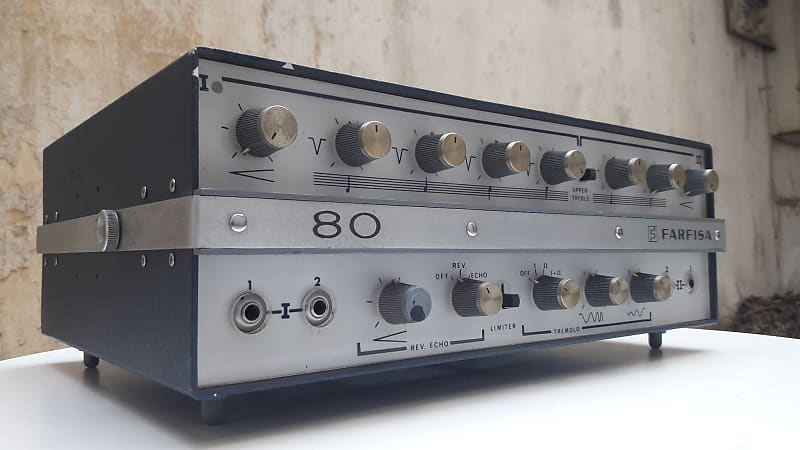

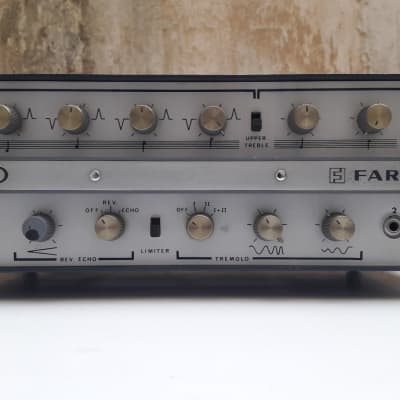
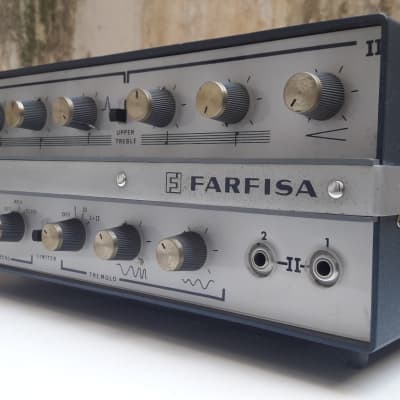
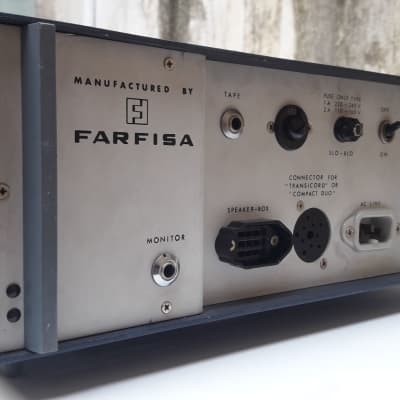
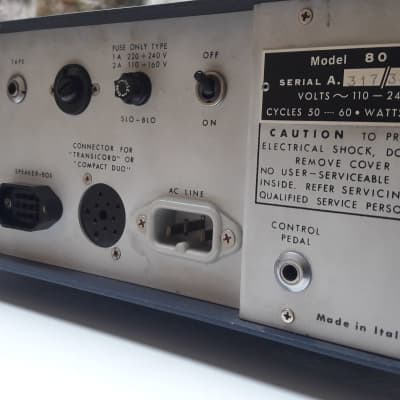
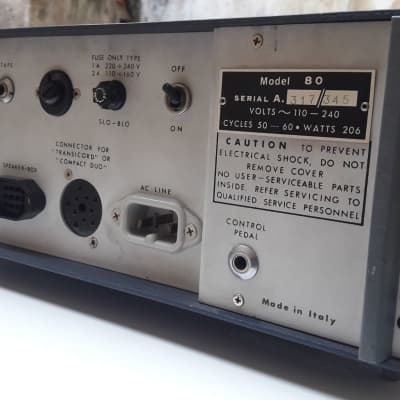
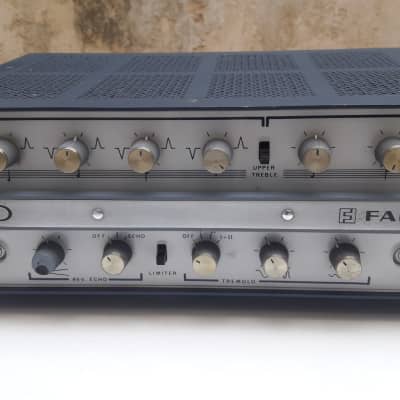
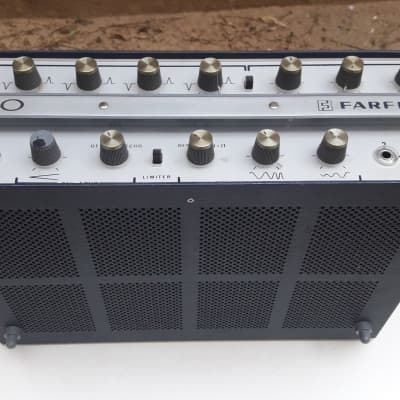
FARFISA BR-80 early transistor amplifier head.
Vintage, Made in Italy in 1967 with serial number 317/345.
Farfisa along with Davoli, Meazzi and Binson, produced during the sixties in Italy, top-of-the-line professional equipment for musicians. Their models rivaled the best from England's Vox, Selmer and Marshall and USA's Fender, Gibson and Ampeg. Both in building & sound quality. Model BR80 was the flagship of Farfisa in their 1967 catalogue.
Description:
Top quality from start to finish in this masterpiece of sound engineering! BR80 is a rare beast. It came out of the Farfisa factory in 1967 in the early days of 80-100 watt transistor amplifiers but only a few were ever produced. It's high asking price at the time made it a forbidden fruit for most and its production ceased shortly after.
2 independant channels (2 inputs each) with separate volume & eq controls. Limiter, treble booster, tremolo. 1 x 80 watt output or 2 x 40 watt independent outputs.
Weight: ~ 25kg
Condition:
Cosmetically, it's in EXCELLENT condition; please see the close-ups that I've uploaded.
It was serviced 15 years ago and used in a recording project; it needs a check by a qualified tech to be brought back to action.
Shipping: Worldwide trackable shipping.
Reverb Buyer Protection
Reverb has your back if your item is lost, damaged, or doesn't match its description. Simply report any issues within 7 days and we'll help you get a full refund.Learn more about Reverb Buyer Protection.
| Listed | a year ago |
| Condition | Very Good (Used) Very Good items may show a few slight marks or scratches but are fully functional and in overall great shape.Learn more |
| Brand | |
| Model |
|
| Categories | |
| Year |
|
| Made In |
|
